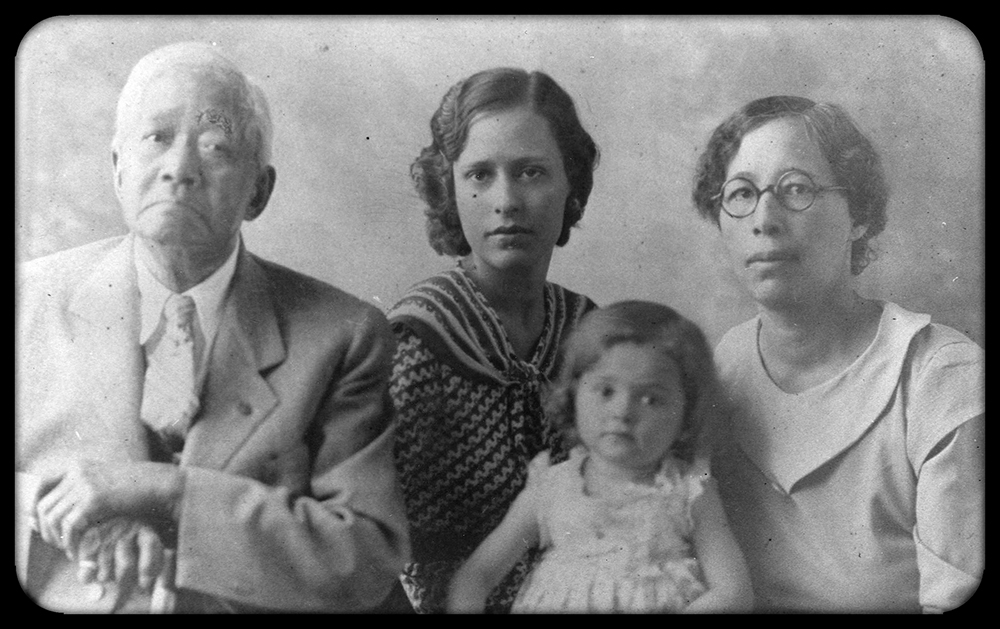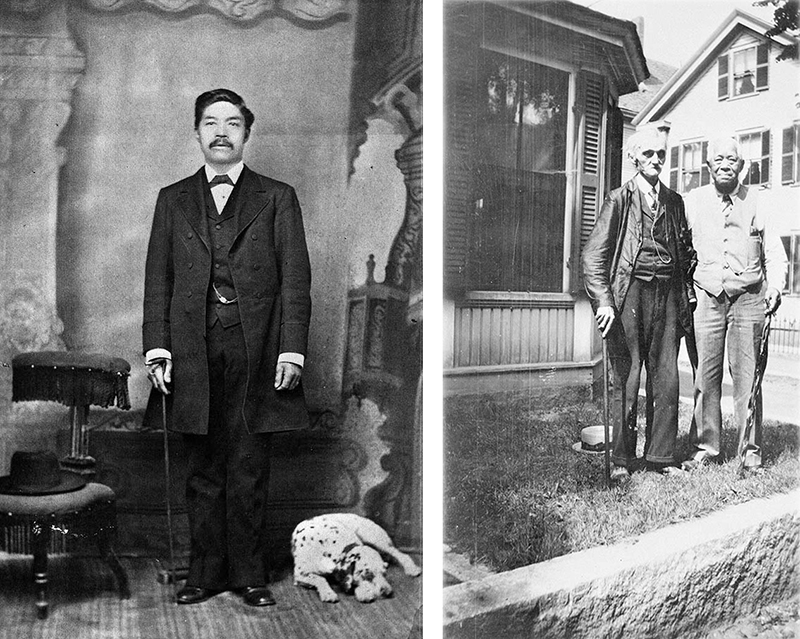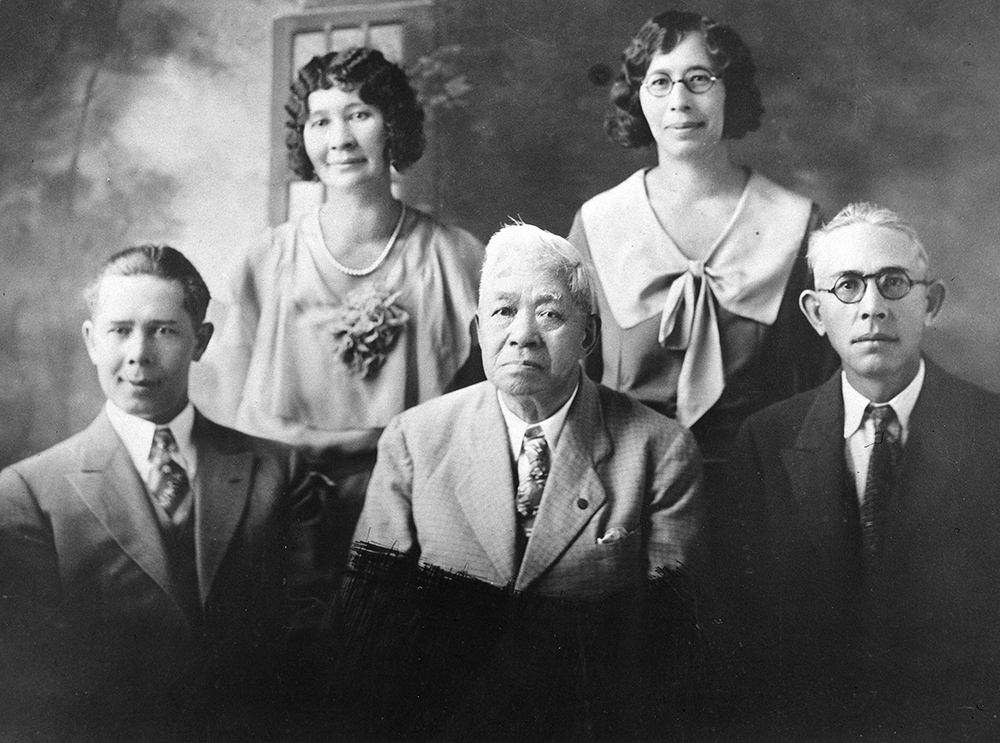Edward Day Cohota

Left to right: Edward Day Cohota; his granddaughter, Ann Marie Manion; his great-granddaughter, Patricia Ray Manion Crowley; and his daughter, Mrs. Elizabeth Cohota Bouza, October 1935. Gift of Barbara Erkkila, 1998 [Acc. #1998.24].
In 2015, on the 50th anniversary of the 1985 Immigration & Nationality Act, the National Park Service recognized the achievements of Edward Day Cohota, a young Chinese man who was among an estimated 300 Asians and Pacific Islanders who fought in the American Civil War. Cohota was born in China near Shanghai and during the early 1850s at around the age of four was brought to America and to Gloucester by Captain Sargent S. Day. According to one biographer, Cohota would never say if he served as a cabin boy for Capt. Day (whose ship was named Cohota) or if he was an adopted son. The Day family owned and occupied what we now call the Capt. Elias Davis House from the 1850s through 1923 when the property was acquired by the Cape Ann Museum.
In 1864, Edward Day Cohota enlisted in Company I, 23rd Massachusetts Voluntary Infantry; since he was underaged at the time, Capt. Day signed the enlistment papers on his behalf. During his 16 months in the infantry, Cohota fought at Cold Harbor, Petersburg and Appomattox. From all accounts, Cohota served gallantly and in at the Battle of Cold Harbor (VA) in June 1864, he saved the life of fellow Gloucester solider William E. Low. When the Civil War ended, Cohota returned to Gloucester. Although the town’s economy was doing well, Cohota was unable to find work. He ultimately reenlisted in the army and went on to spend a total of 30 years in service to America, much of that time working in the West.
While Edward Day Cohota’s experiences during the Civil War were not unlike many young men who served, the treatment he received in the decades following the conflict was singular and reflected the biases and prejudices that existed in this Nation and still do. In 1912, Cohota applied to the U.S. Government for a homestead in Nebraska where he was living and working with his family; his request was denied on the grounds that he was not an American citizen. When he sought permission to become a citizen, his request was denied. Years later, when he requested a pension for his service in the War, that too was challenged, although he ultimately did received compensation from the government. According to his daughter, despite this treatment, Cohota felt no resentment towards the United States although he must have felt the injustice of it deeply.
Edward Day Cohota spent much of his adult life in the West but in 1928 he came back to Gloucester with his son to visit members of the Day family and William Low whose life he had saved during the Civil War.

(left) Edward Day Cohota, c. 1880s; (right) Edward Day Cohota and William E. Low (last two living members of Co I, 23rd Reg. Mass. Volunteers) reunited in Gloucester, 1928.

Edward Day Cohota and four of his five children. Left to right: Wm. Day Cohota; Lucy Cohota Krauss; Edward Day Cohota; Elizabeth Cohota Bouza; Edward Woods Cohota, 1930.